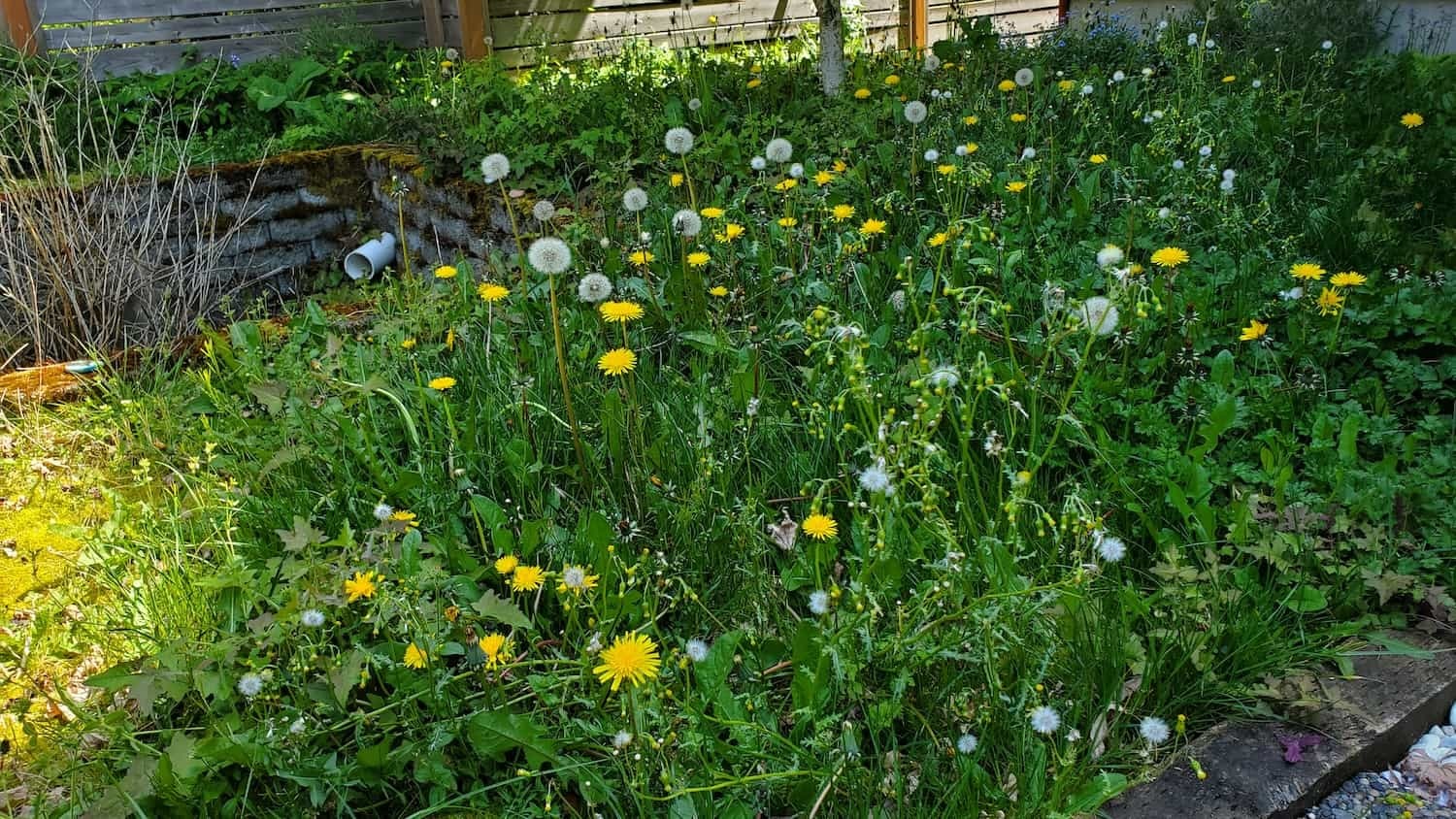West Seattle Flame Weeding
Homeowner’s Issue
West Seattle yards live with a narrow set of recurring problems: dense winter rain, thin topsoil over glacial till, moss in shaded spots, and scrubby weeds on sunny slopes and drive edges. The combination of heavy October–March rainfall and summer micro-droughts stresses plants and favors opportunist weeds like chickweed, spurge, and volunteer grasses. On slopes above Alki, along Admiral and Fauntleroy streets, runoff and compacted soil mean weeds exploit every bare patch; in tree-canopied blocks near Lincoln Park you’ll see moss and ivy pushing into beds.
Many homeowners here try hand-weeding or roundups that only slow the issue. Flame weeding is a thermal approach that kills annuals and forces shallow-rooted weeds to resprout from a depleted crown, making follow-up mechanical removal and mulching far more effective. It’s chemical-free and works well in the mixed sun/shade exposure typical of West Seattle properties, but it’s not a one-pass cure for deeply rooted perennials or established ivy. Seattle’s seasonal watering patterns and occasional fire-danger advisories affect scheduling, so we plan work on dry, low-wind days and follow city guidance. If your curb appeal suffers from gravel paths choked with grass, patio joints sprouting weeds, or steep bank maintenance that’s become hazardous, thermal weeding is a practical, sustainable choice.
Our Quality Service
We use propane torches designed for landscape thermal weeding, plus hand tools and brushes to finish work without chemicals. Each job starts with a site assessment that notes soil type, slope angle, sun/shade patterns, and nearby desirable plants. Typical small-lot jobs take 1–3 hours; larger yards or steep banks are scheduled as half-day or full-day work.
Local insight: West Seattle soils often sit shallow over compacted clay—flame weeding weakens surface-rooted weeds so we can remove crowns and improve soil contact for mulch or plantings. We avoid work during burn bans or wet, windy days. Benefits include safer access on slopes, reduced weed regrowth when combined with mulch, and immediate curb-appeal gains. We do not use chemical herbicides—only heat, hand removal, and organic mulch strategies.
What’s Included
- Pre-job assessment and written scope.
- Thermal treatment of targeted weeds (torch passes appropriate to species).
- Hand removal of loosened crowns and roots where needed.
- Light edging and sweep-up of treated area.
- Final tidy and guidance on follow-up care.
Options / Upgrades:
- Mulch + landscape fabric (recommended for pathways and beds).
- Organic top-dress compost to improve soil structure.
- Mechanical removal for deep-rooted perennials or ivy.
- Haul-away of debris or placement into your green bin per city rules.
Before & After / Expectations
Be realistic: flame weeding singes or collapses weed tissue immediately but roots on strong perennials can survive. Expect a bit of smoky smell and short-lived browned material; we rake or remove debris where practical. Work on patios and gravel may leave charred fragments that we sweep out.
Typical timelines: one visit for annual and shallow weeds; plan a 2–8 week follow-up for perennial crowns or re-sprouts. On steep banks we may need staged visits for safety and erosion control. Aftercare tips for West Seattle: avoid heavy watering for 24–48 hours after treatment; apply 2–3” of organic mulch in spring to suppress regrowth; monitor shaded, moss-prone spots through early spring when moisture encourages re-establishment.
FAQs
Do you use chemicals?
No. We use only heat, hand removal, organic mulches, and mechanical methods—no herbicides.Is flame weeding safe on slopes and near plantings?
Yes, when done by trained crews with tools, water on hand, and exclusion zones. We protect desirable plants and avoid torching roots that would destabilize slopes.How often will I need follow-up?
For most West Seattle yards one treatment plus mulch/edging cuts annual weed pressure; persistent perennials or ivy often need 2–3 visits the first season.Can you work in the rainy season?
We schedule only on dry, low-wind days. Fall and late spring are best for long-term control; summer windows are usable when soil is dry.What about city rules or burn bans?
We monitor local burn restrictions and cancel or reschedule if advisories prohibit open-flame landscape work.
Call to Action
If your West Seattle yard—Alki, Admiral, or Lincoln Park edge—needs a chemical-free reset, book a free estimate. We schedule quickly on dry windows, give clear pricing, and focus on durable, low-maintenance outcomes. Email neatandtidyseattle@gmail.com or call 206-538-9344 to get started with a site assessment and plan that fits your slope, soil, and visibility needs.










